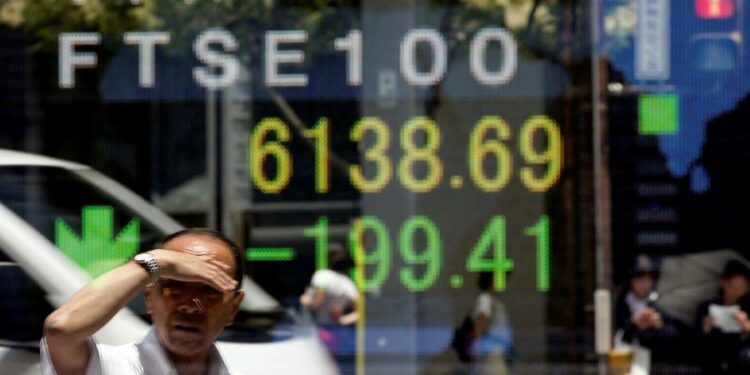European equities were subdued on Wednesday, following a strong rally driven by optimism that the Omicron coronavirus variant would prove less economically disruptive than feared.
The regional Stoxx 600 index fluctuated between minor gains and losses while futures contracts that bet on the direction of Wall Street’s S&P 500 added 0.3 per cent. London’s FTSE 100 rose 0.2 per cent.
Global stocks rose by the most in more than a year on Tuesday, after whipsawing in the past fortnight as investors debated the potential impact of Omicron, which has appeared more transmissible than previous variants.
The Stoxx and Wall Street’s S&P 500 completed their strongest two-day rise of 2021, according to Deutsche Bank, after early South African data suggested Omicron may also be less likely to result in serious illness than other strains.
However, a study by the Africa Research Institute late on Tuesday offered mixed results on how the variant responded to the BioNTech/Pfizer vaccine, finding a loss of immune protection that was “extensive but incomplete”.
“We still have a high degree of uncertainty about the pandemic,” cautioned Juliette Cohen, strategist at CPR Asset Management, adding that thin trading conditions during the holiday season meant market moves “are going to be more amplified than they should be”.
A move by Chinese authorities to manage the decline of ailing property developer Evergrande and support the housing market have also boosted market sentiment.
The renminbi on Wednesday rose to Rmb6.35 per dollar, its strongest since about May 2018. China’s CSI 300 share index gained 1.5 per cent, while Tokyo’s Nikkei 225 added 1.4 per cent.
The yield on the 10-year US Treasury note was steady at around 1.47 per cent as the price of the benchmark debt instrument rose.
Germany’s 10-year Bund yield was also broadly flat at minus 0.37 per cent, close to its lowest since early September.
Federal Reserve chair Jay Powell last week indicated his support for a rapid reduction of the central bank’s $120bn-a-month bond purchases that have boosted markets since March 2020.
Leading economists expect the Fed will end its asset-purchase programme by next March, setting the stage for rate rises soon after, according to a survey conducted in partnership with the Financial Times by the University of Chicago Booth School of Business’s Initiative on Global Markets.
“Markets are currently positive but there’s a potential narrative shift we need to be careful about,” said Anthony Collard, head of investments for the UK and Ireland at JPMorgan Private Bank.
The Fed’s asset purchases have lowered borrowing costs and bond yields, in turn driving investors into speculative assets such as early-stage technology stocks and cryptocurrencies.
“We are in a position where the Fed is starting to turn that exercise around,” Collard said. “It is a headwind.”
Analysts polled by Refinitiv expect US inflation data for November, set to be released on Friday, to show consumer prices rose 6.8 per cent from the same month last year because of pandemic-related disruptions to supply chains and a travel sector rebound.
Elsewhere, sterling touched a year-low against the dollar of $1.317 as UK prime minister Boris Johnson was expected to announce new coronavirus restrictions and ahead of the Bank of England’s rate-setting meeting next week.











